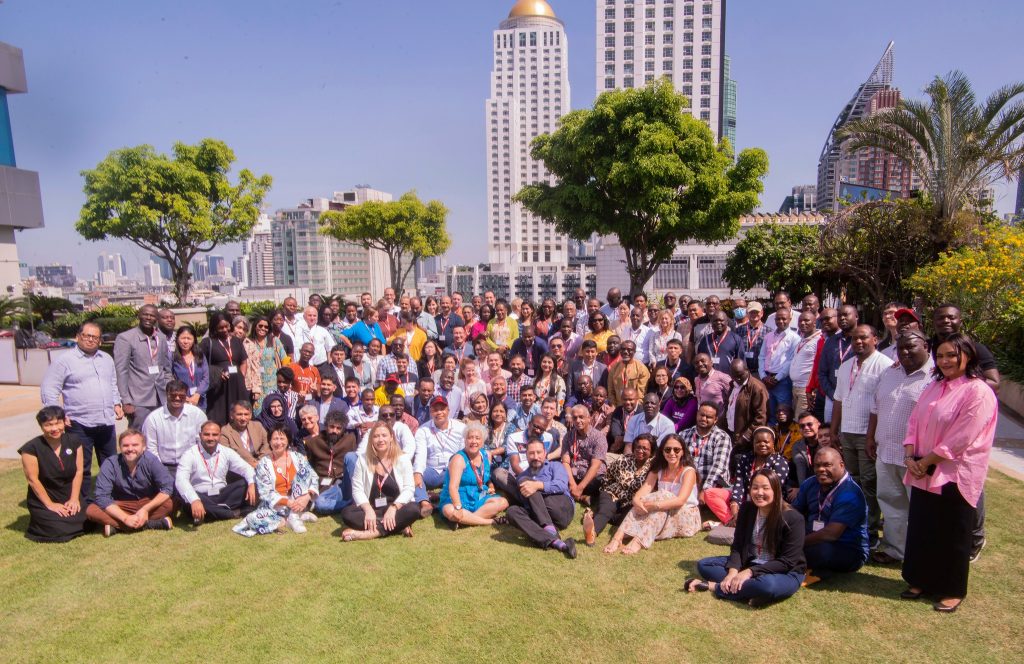
Stop TB Community Summit with TBpeople Philippines (November 10, 2022)
At the Stop TB Community Summit, 160 TB survivors, champions, civil society members, and country-level STP platform partners from 35 countries present a single ambition and voice.
In a first of its kind, the Stop TB Partnership’s Community Summit brought together more than 160 Challenge Facility for Civil Society (CFCS) and country-level Stop TB Partnership (STP) platform partners from over 35 countries to collaborate and strategize on how to raise awareness of tuberculosis (TB) and make sure it occupies a prominent position on the political agenda of the world. The Summit provided a chance to further establish CFCS’s status as a crucial tool for developing community-led, sustainable TB treatment options.
A series of panel discussions and group activities were held with the goal of educating, organizing, and coordinating TB communities for strategic participation prior to the United Nations High-Level Meeting (UNHLM) in 2023. The participants spent the week reflecting on the results of the last UNHLM 2018, and they also came up with creative suggestions for community advocacy in the run-up to the UNHLM 2023. The main objective of this exercise was to make sure that all heads of state and government from across the world participated actively.

The Deadly Divide: TB Commitments Vs. TB Realities community accountability report, which will be established as a crucial advocacy tool to outline critical goals for the UNHLM 2023, was developed with input from affected communities and civil society partners.
The participants concentrated on the significance of institutionalizing and scaling up Community Led Monitoring (CLM) to reach every person affected by TB, drawing on the conclusions of earlier discussions about the opportunities for country-level engagement and bridging the deadly gap between communities and TB realities. Mozambique, the Democratic Republic of the Congo (DRC), Ukraine, Cambodia, Cameroon, and Kyrgyzstan were among the nations where the OneImpact CLM strategy was used.
Over 130 community and civil society organizations signed the Bangkok TB Community-led Monitoring statement at the conclusion of the meeting, which requests that national TB programs, technical partners, providers of technical assistance, and donors coordinate, mainstream, scale up, and fund OneImpact CLM for all.
The Stop TB Partnership Community Award for 2022 was jointly presented to TBpeople Ukraine and Club des Amis Damien (DR Congo) at the Gala dinner held at the Summit. The Humana Foundation and the Stop TB Partnership have partnered to provide the US$50,000 award.
The Summit also aimed to educate grassroots organizations and partners on effective grant management and implementation, grant support to increase grant handling capacity, narrative reporting, financial reporting practice, how to effectively document change and best practices, as well as communication and advocacy skills.
The significance of national advocacy, the engagement of communities afflicted by TB, and civil society in the fight against TB were additional major topics of discussion during the Summit. The partners had talks on how to create ambitious National Strategic Plans, placing special focus on making sure that the same degree of ambition seen in the Global Plan to End TB 2023–2030 is present at the national level.
The need of having ambitious NSPs was stressed as a way to guarantee that nations would be in a good position to create strategic Global Fund financing proposals for the future New Funding Model IV (NFM4) submissions. The STP NFM4 TB Community Support Package, which included introductions to TB communities, rights and gender (CRG) tools like the TB Key and Vulnerable Population Size Estimation tool, the TB Legal Enabling Environment Scorecard, and the TB Financial TB CRG Action Plan Investment Package and Guidance, was shared with participants in this context.
The Challenge Facility for Civil Society and country-level STP platforms gave cooperation and coordination for impact priority on the summit’s last day. The work on UNHLM, CLM, and NFM4 that had been addressed throughout the previous days served as a roadmap for this. Through national and regional TB networks, the Summit provided a huge opportunity for cross-country learning and coordination, assuring grantee mobilization and partnerships for shared advocacy goals.
